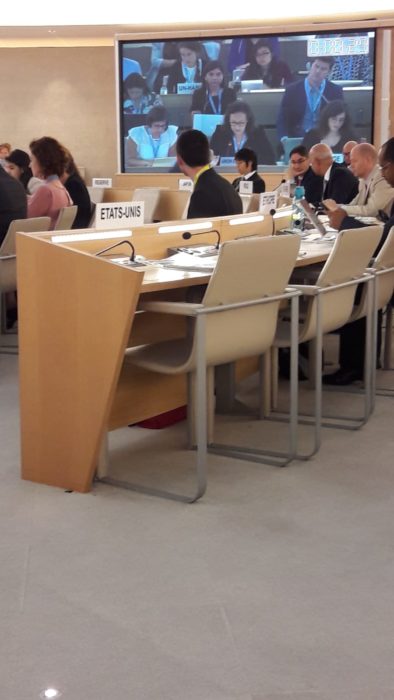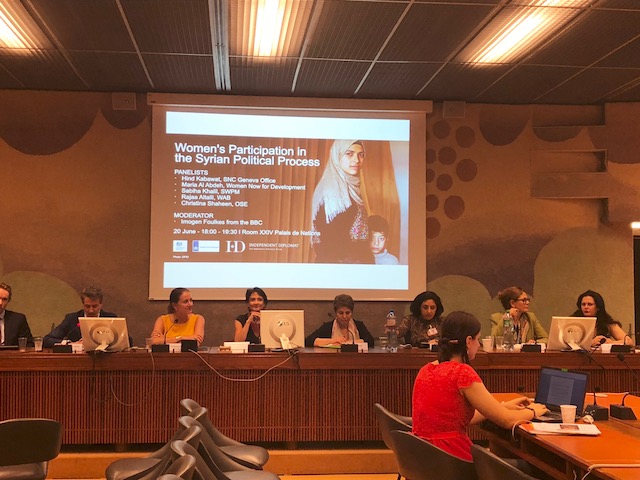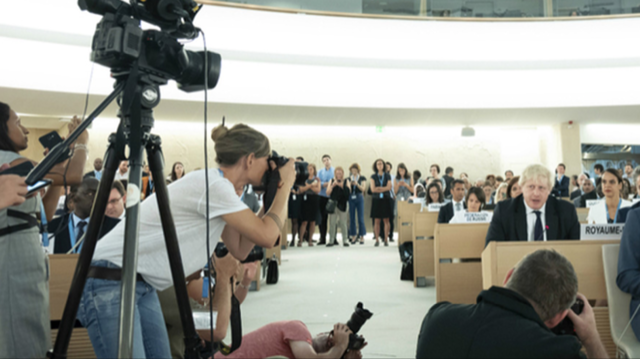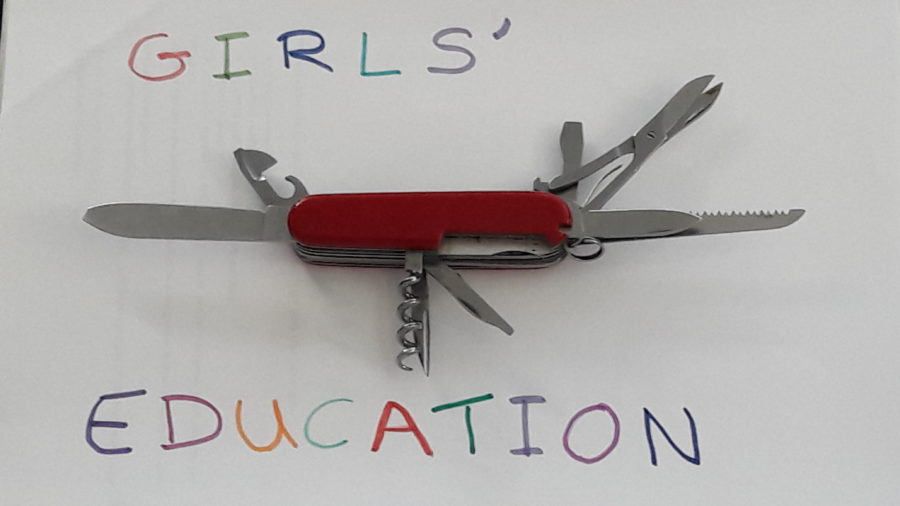25th June 2018 Geneva, Switzerland
Keeping the light on

My Council session got off to an unfortunate and slightly messy start. As I rushed to leave the house I discovered that the cat had regurgitated something unpleasant inside my freshly polished work shoes. I’m not prone to superstition but it felt like a worrying omen for what lay ahead. And so it proved to be.
Last week’s decision by the United States to leave the Human Rights Council had been long in the making but always looked likely since Ambassador Nikki Haley’s visit last year. Many agree with her that the Council membership needs improving and that there is an obvious failing in the way the Council singles Israel out for criticism through a separate agenda item. But leaving the Council is not the way to fix either issue.

I’ve spent more time than most immersed in the Council’s waters and they certainly run a little murky from time to time. Too many states escape scrutiny who deserve to be in the spotlight and too many of the most marginalised and vulnerable people do not get the attention they need to protect their rights. This is certainly frustrating but this doesn’t make the Council a failure, and even less a cesspool.
Throughout their time on the Council the US played a part in many of its standout achievements. They led important resolutions on freedom of expression and association. They brought Sri Lanka back onto the Council’s agenda after the disastrous Special Session at the end of the civil war. They played the pivotal role in setting up the Council’s strongest ever mandate – the Commission on Human Rights on South Sudan. And their presence has also encouraged others to push the Council’s boundaries on many other progressive issues.
These successes don’t mean the Council is without fault but giving up is not going to help. Improving the Council requires a more determined response by those who want to uphold human rights through the international system. And you don’t have to look very hard here to find inspiration for doing this. Throughout Council sessions there are events where human rights defenders share stories of incredible perseverance and personal sacrifice in the pursuit of justice. During a panel event this week, Syrian women from diverse communities described how they had been working for years to support women’s involvement in the political process and to resist arbitrary detention, torture and killings across Syria. It was humbling to hear how they stood firm in the face of overwhelming adversity and a sobering reminder that people can stay the course under the most harrowing circumstances.

Before the US had announced their departure, High Commissioner Zeid delivered his final global update to the Council before he steps down this summer. There was an emotional atmosphere and he received a standing ovation, in recognition of his clear dedication to his mandate. There were three messages which stood out – the need to reject chauvinistic nationalism, which Zeid described as “the most destructive force to imperil the world”; the need for more states to cooperate with the UN human rights system; and the need to reject the notion that human rights are a western construct. At time when human rights are under ever greater attack, this myth is especially important to debunk. Usually the suggestion that human rights is a western concept is a fiction peddled by repressive states to justify violations on the grounds that universally recognised concepts don’t apply to them. The fact that Zeid said he had heard this from within the UN system was particularly worrying.
Straight after Zeid’s statement, UK Foreign Secretary Boris Johnson used his first Council visit to stress the great value the UK places in the Council’s work and to urge support for a UK-led initiative on 12 years of quality education for girls. He said this was the way to solve the majority of the world’s most serious problems ranging from infant mortality to malnutrition, and from unemployment to civil war.

He later launched an exhibition on girls’ education alongside Kenyan Minister Amina Mohamed and Andria Zafirakou, winner of the global teacher award for 2018. He described girl’s education with the image of the Swiss army knife – a universal tool which offers solutions to every challenge. It was an appealing image – give girls a quality education and they will be in a position to achieve equality in employment, to combat violence and to take part in peacebuilding. It really is the answer.

The exhibition was housed in the Luminarium – a walk-through art structure using different colours of natural light which has the effect of calmly altering perception. In a more ponderous moment inside, I took stock of what the US departure may bring. There is a clear danger that there will be attempts to undermine much of the good progress the Council has made since 2010. Threats are likely to resolutions on some individual countries and progressive new mandates such as sexual orientation and gender identity. There is risk of a further weakening of civil society space inside and outside the Council. And there is likely to be pushback against the growing recognition of the Council’s potential to prevent human rights violations and mass atrocities. There may be dark times ahead. But it is the responsibility of those of us who are committed to protecting human rights to keep the Council’s light shining.
Hey Bob,
many thanks for these very well written thoughts and glances behind the scenes. So we have to keep up the human rights flag even a little higher, I guess.
all the best
Judith